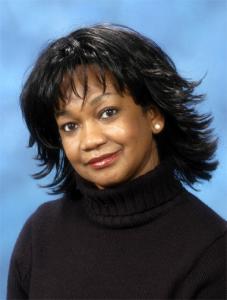Leading AI Disinformation security firm launches comprehensive dataset to combat AI-generated disinformation, achieving highest accuracy in deepfake detection Our dataset and benchmark results represent a significant milestone in the fight against digital deception. We're setting a new standard for transparency and effectiveness in deepfake detection.”
— Rijul Gupta, CEO and Founder, Deep Media SAN FRANCISCO, CALIFORNIA, UNITED STATES, August 19, 2024 /EINPresswire.com/ -- Deep Media, a global leader in AI Disinformation Security, today announced the release of its Deepfake Detection In-The-Wild Benchmark Dataset, setting a new gold standard for the identification of AI-generated images. This groundbreaking dataset, comprising 3,000 meticulously curated images, represents a significant leap forward in the ongoing battle against digital deception.
In a time where the line between real and synthetic media is increasingly blurred, Deep Media's initiative comes at a crucial time. The dataset is designed to challenge and improve deepfake detection methods across the industry, focusing on hyper-realistic AI-generated images that pose genuine risks to governments, industries, and individuals.
"As AI-generated content becomes more sophisticated, the need for robust detection methods has never been more critical," said Rijul Gupta, CEO and founder of Deep Media. "Our new dataset provides a standardized, up-to-date testing ground that reflects the current state of the art in AI-generated imagery."
Key features of the dataset include:
+ Comprehensive and diverse content, evenly split between real and AI-generated images
+ Advanced analysis techniques, including CLIP embeddings and k-means clustering
+ Innovative Confusion Matrix-PCA Hybrid visualization for unprecedented performance insights
Using this dataset, Deep Media's proprietary DeepID detection system has achieved remarkable results, including highest-ever achieved overall accuracy and a 0.96 ROC AUC score. These benchmarks set a new standard for the industry, demonstrating what's possible in the fight against deepfakes.
The dataset is the result of collaborative efforts with prestigious institutions, including Purdue University, the University at Buffalo, and SRI International. It addresses the pressing need for updated benchmarks in a rapidly evolving field, where many still rely on outdated standards from 2022.
Deep Media is making this dataset available to researchers, government agencies, and tech companies worldwide, encouraging collaboration in the fight against AI disinformation. The company is committed to continually updating the dataset to ensure it remains at the cutting edge of generative AI capabilities.
For more information about the Deepfake Detection In-The-Wild Benchmark Dataset or to request access, please visit www.deepmedia.ai or contact [email protected].
About Deep Media: Deep Media is a leading AI security firm specializing in deepfake detection and AI disinformation prevention. With a commitment to preserving digital truth, Deep Media provides cutting-edge solutions to governments, enterprises, and tech platforms worldwide.
ResearchDeep Media, Inc.+1 405-765-3169email us hereVisit us on social media:XLinkedIn
Legal Disclaimer:
EIN Presswire provides this news content "as is" without warranty of any kind. We do not accept any responsibility or liability for the accuracy, content, images, videos, licenses, completeness, legality, or reliability of the information contained in this article. If you have any complaints or copyright issues related to this article, kindly contact the author above.
You just read:
News Provided By
August 19, 2024, 13:00 GMT
EIN Presswire's priority is author transparency. We do our best to weed out false and misleading content. The content above is the sole responsibility of the author who makes it available. If you have any complaints, kindly contact the author above.
Originally published at https://www.einpresswire.com/article/735638615/deep-media-unveils-groundbreaking-deepfake-detection-dataset-setting-new-industry-benchmark







